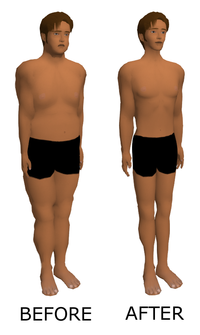
Photo from wikipedia
Gastric cancer is the fourth leading cause of deaths in Poland. The standard treatment for non-advanced gastric cancer is surgery, which significantly reduces the quality of life of patients. The… Click to show full abstract
Gastric cancer is the fourth leading cause of deaths in Poland. The standard treatment for non-advanced gastric cancer is surgery, which significantly reduces the quality of life of patients. The objective of the study was to evaluate the strategy of coping with pain and its control, acceptance of illness, and adjustment to living with cancer in patients suffering from gastric cancer. The analysis of the impact of socio-economic factors on the above-mentioned problems was also analyzed. The study was conducted among 93 patients diagnosed with gastric cancer, treated on an outpatient basis at the Oncology Center—Maria Skłodowska—Curie Institute in Warsaw in 2017–2018. The PAPI (paper and pencil interview) technique was used. The questionnaire interview included metric questions (socio-economic variables) and four psychometric tests: BPCQ (the Beliefs about Pain Control Questionnaire), CSQ (the Pain Coping Strategies Questionnaire), AIS (Acceptance of Illness Scale), and Mini-MAC (Mental Adjustment to Cancer) test. In the area of pain control, patients with gastric cancer assign the greatest role to internal factors (M = 16.34, SD = 4.93), although women obtained the highest value in the impact of physicians. In the area of coping with pain, patients most likely select the strategy of praying/hoping (M = 22.19, SD = 9.36). The mean value of acceptance of illness for patients with gastric cancer is M = 24.02, SD = 7.69, and it is not conditioned by any socio-economic variable. In the area of mental adjustment to illness, the highest values were obtained by positive reevaluation (M = 20.73, SD = 3.35) and fighting spirit (M = 20.68, SD = 3.98). Patients with gastric cancer control pain mainly through internal factors. The most frequently chosen strategy for coping with pain is praying/hoping, and positive reevaluation prevails in the field of mental adjustment. The results point to specific factors that can affect the patient’s pain, quality of life, and treatment outcomes. Knowing the diversity of these factors, it is possible to plan specific psychotherapeutic activities for specific groups of people that could be a supplement to the standard treatment process.
Journal Title: Journal of Cancer Education
Year Published: 2019
Link to full text (if available)
Share on Social Media: Sign Up to like & get
recommendations!